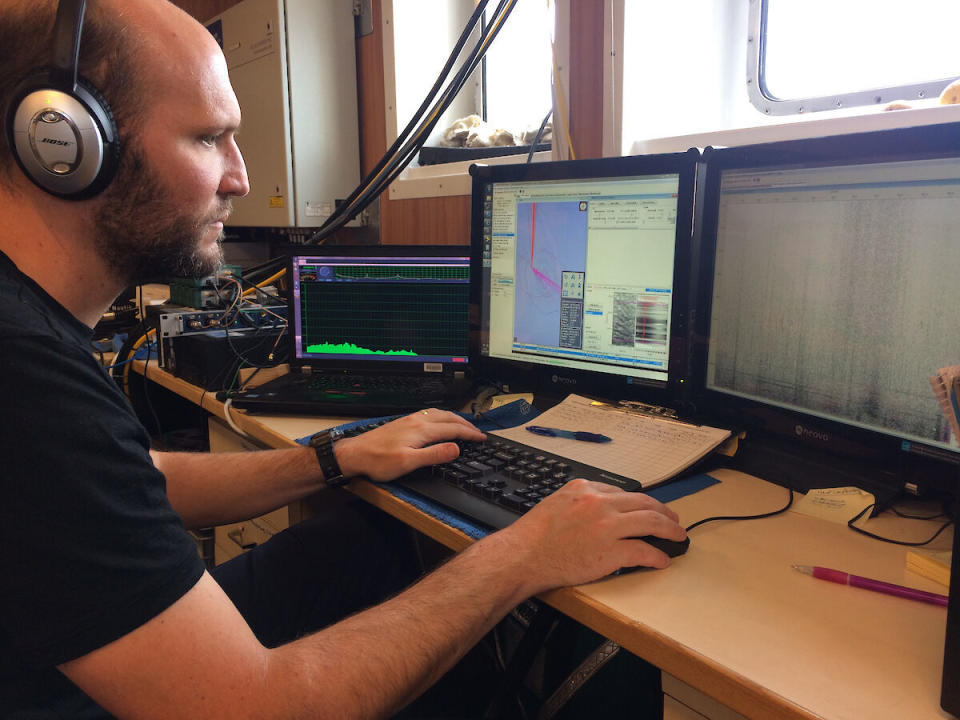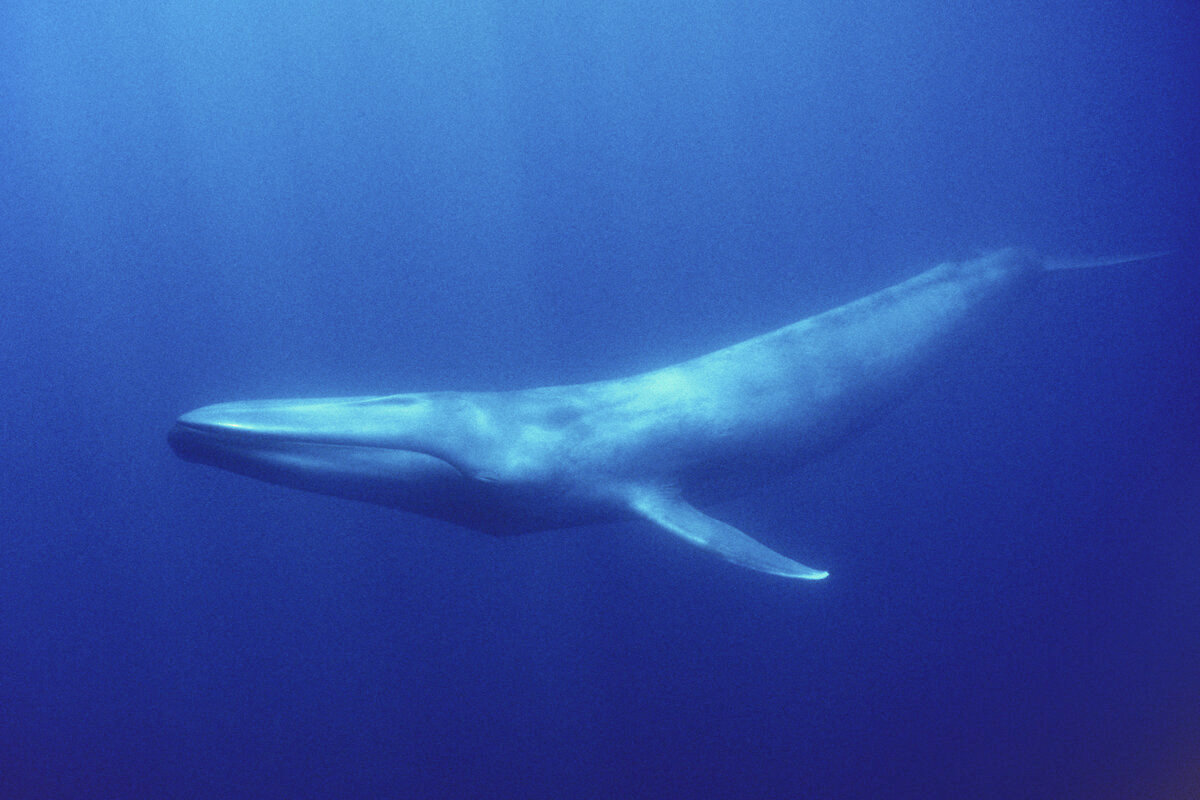A nearly two-decade study of whale songs recorded in the Southern Ocean suggests that blue whales, the largest creatures ever to have roamed the Earth, may be recovering in Antarctica after being hunted to the edge of extinction.
Commercial whaling reduced the number of Antarctic blue whales from around 125,000 in the early 1990s to a few thousand today. But bans on whaling have made it possible for the critically endangered creatures to begin to rebound.
Measuring up to 100 feet long and weighing up 200 tons, blue whales can grow to the size of a passenger airplane, and make even more of a ruckus. The loudest animal on the planet, a blue whale can sing at a volume upwards of 180 decibels — louder than a jet engine.

For the new study, published in Frontiers in Marine Science, researchers from the Australian Antarctic Division deployed free-floating listening stations in the Southern Ocean to record the distinctive songs of Antarctic blue whales, sometimes honing in on whales hundreds of miles away. From 2006 to 2021, they analyzed thousands of hours of audio, as well as videos, photos, and other observations. Over that time, scientists heard the whales singing with growing regularity.
“Maybe they’re getting louder or maybe they’re calling more frequently. Maybe this population is increasing and that’s why we’re hearing them more often,” lead author Brian Miller told the Australian Broadcasting Corporation. “It’s going to take a bit more work for us to be able to answer that conclusively.”
ALSO ON YALE E360
Dire Straits: Can a Fishing Ban Save the Elusive European Eel?
